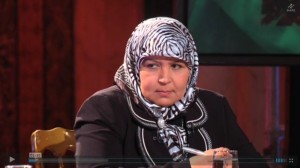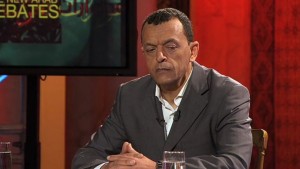This House believes that Tunisia's revolution risks leading to deadlock not democracy
The slow pace of change in Tunisia is deadlocked according to voters at the New Arab Debates in Tunis on 1st March 2012. Seventy percent of participants supported the provocative motion ‘This House believes that Tunisia’s revolution risks leading to deadlock not democracy”. After a long debate which included questions on media freedom and assaults on journalists, 30 percent voted against the motion, in contrast to views prior to the debate where 49 percent voted for the motion and 51 percent against.
Dr. Lotfi Saibi, founding member of the AfekTounes Party, speaking for the motion said the government had gone off-track, and was “fractured by internal deep divisions caused by ideological theories, discredited by rampant corruption… our revolution today is smothered by social restrictions.. This road has taken us to an incredible deadlock”. Arguing against the motion Ms. Mehrezia Labidi, Deputy Speaker of the newly-elected Tunisian National Constitutional Assembly and member of Ennahda Party said the change was ‘maybe slow’ and it was firm as they worked towards creating employment for Tunisia’s young people. She said: “There is no deadlock, there is success of this revolution which will be a model for others.”
Mr. Sebastian challenged Dr. Saibi’s impatience and asked why he didn’t give it time for passionate arguments as part of a democratic process. Dr. Saibi replied: “We risk not to accomplish the real objectives as that defined by those who fought for the revolution”.
More than a year after the revolution that toppled a dictatorship in Tunisia, Ms. Labidi, now the most senior elected female Arab politician, told the gathered young students, political and human rights activists “Nobody will fear that going out of this place that they will be arrested or asked about what he said or listened to and this means freedom works, revolution was done for this…we have a parliament, a legitimate government… people who disagree with us and criticise – this is democracy”.
Moderator Tim Sebastian asked Ms. Labidi if the police were out of control. Ms. Mehrezia Labidi denied these allegations and said each act of violence will be legally dealt with, and there will be no foot dragging. Ms. Labidi said “I’m a woman, I’m Tunisian and I hope that everyone, despite of their differences, realises that their revolution is leading to success”. This debate was the third of its kind in Tunisia since the beginning of The New Arab Debates in October last year.
Speakers
Audience vote
- For: 1
- Against: 2



Comments
Comments have been disabled.